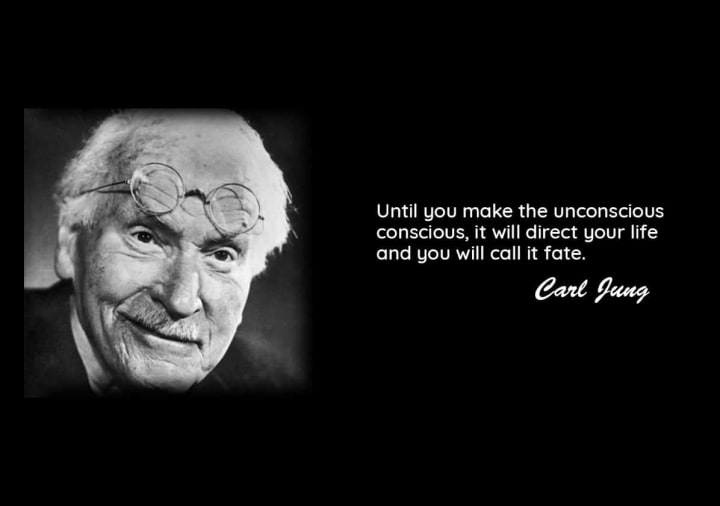
The old story of "give mercy, not execute", was an example of our generation's learning of Estonian grammar, how the choice of the place of the comma can completely change the meaning of the sentence, but since the landlord did not have a good relationship with commas, the comma was placed in the second place instead. "Not to pardon, but to execute" and only because of the comma, the one who actually wanted to be pardoned lost his life.
To understand or not to understand is a deep topic that invites us to think about the importance of self-forgiveness and mental health. We often tend to criticize and blame ourselves, being our own harshest critics. But have we ever thought about what consequences it can bring us?
Self-rape is often manifested in self-depreciation, blaming oneself for past mistakes, and constantly not meeting the high standards set for oneself. After all, I can't be such a good person, I do not have the right to redeem myself. My fate is execution because I am so bad and I have done unforgivable things in my mind. Pardon me francs - but this attitude towards oneself is someone's self-accepted thought pattern that served the interests of that other person a very long time ago. So, with the following text, we will try to shed some light on these action patterns. Of course, this topic can go much deeper into the causes of each so-called unacceptable behavior. In other words, what was it that the perpetrator of this pattern actually needed? In short, there are rather surprising needs behind them.
So, all of this leads to anxiety, depression, and low self-esteem to begin with. It can also affect our relationships with other people, as our own negative internal dialogue can be reflected in our behavior and interactions with others. And it doesn't matter how well we think we try to hide it. Or we act as if we want to save others from ourselves.
Getting out of the cycle of mental rape is difficult, but it is possible and necessary. Here are some steps we can take:
1. Recognize the problem: The first step is to realize that you are beating yourself up mentally, for things you have only done in your own mind. Be aware of negative thoughts and low self-esteem.
2. Be gentle with self-criticism: When you make a mistake or fail, think about how you can learn from it instead of blaming yourself. We are all human and make mistakes. It is by making these so-called mistakes that we learn.
3. Practice self-care: Find time for yourself and do things that bring you joy and relaxation, and don't care what others think about those activities. It can be meditation, a walk in nature, doing a hobby, even playing video games or anything that helps you relax and get in better touch with yourself.
4. Find support: Talk to friends or family about how you feel. Perhaps consider the help of therapy or counseling to explore your self-esteem and mental health issues more deeply. Do not try to cut yourself off from others, believing that you are worthless and that others are better off without you. This is one of the outputs of a distorted self-image.
5. Remind yourself of your achievements: Think about what you have achieved and what makes you special. We tend to focus on our faults, but it is important to remember our positive aspects as well. And the belief that there is nothing unique or valuable about you is once again a distorted self-image.
6. Learn to understand self-love: Forgive yourself for past mistakes and be kind to yourself. Self-love is the key to breaking the cycle of self-abuse.
"Understand, Don't Judge" is a reminder that self-forgiveness and self-care are important parts of maintaining our mental health. When we learn to understand and love ourselves, we can live happier and more fulfilling lives and treat other people with compassion.
It is important to remember that this process can be difficult and painful, but support and guidance can help you understand and overcome the trauma-based dark patterns associated with your behavior and move forward in a healthier and more self-loving direction.

A Jungian approach to mental rape and its underlying patterns offers a deeper understanding of the complexity of the human psyche and self-development. At the heart of Carl Gustav Jung's theory is individuation, which refers to a person's journey towards understanding and unity of the deeper layers of oneself. So, if you look at it from a Jungian perspective, it is its background patterns that shape the journey into the Self.
1. Hidden Inner Archetypes: Jungian theory emphasizes the existence of archetypes, which are universal symbols and patterns in the human collective unconscious. Spiritual rape can refer to hidden archetypes that may be related to themes of victimhood, violence, or power. In individual analysis, one can discover which archetypes influence personal behavior and relationships.
2. The relationship between persona and hidden self: Jung's concept of “persona” refers to the personal mask that a person wears in society. Mental rape can occur when a person wears an appropriate mask on the outside, but hides deep down his hidden self, including traumas and fears. Jungian analysis examines this contradiction and helps a person find a balance between the persona and the hidden self.
3. Dreams and Symbols: Jung believed in the power of dreams and symbols to reveal the inner conflicts and underlying patterns of the human unconscious. A person who has experienced spiritual rape can find value in dream analysis and understanding the symbols that point to their inner struggles and wounds.
4. Journey of Individualization: According to Jungian theory, the process of individuation is a personal journey toward understanding the deeper layers of oneself. Through this process, a victim of mental rape can discover and integrate hidden wounds and become a more whole and stronger person.
In summary, the Jungian approach can provide a person with the tools and perspective to understand their inner conflicts and background patterns and find a path to self-development and healing when dealing with issues of mental rape. This often takes time and commitment but can help a person find their true self and balance their inner strengths.
I hope that there is a little piece of information about what makes us rape ourselves, and at the same time a ray of sunshine in the form of hope that it is possible to get out of this. Please do not be alone with these thoughts, but seek immediate support and help. Your life is precious and you deserve support and treatment to find a path to recovery. Despite the current difficulties, you can find a better and brighter future.
Elle Vihman 02.09.2023
About the Creator
Elle Vihman
I was born and raised in a small Baltic country called Estonia. Back then, it was still known as Soviet Estonia, and the main laws were dictated by Russia. Today, the most important thing any individual can do is find their inner balance.






Comments
There are no comments for this story
Be the first to respond and start the conversation.